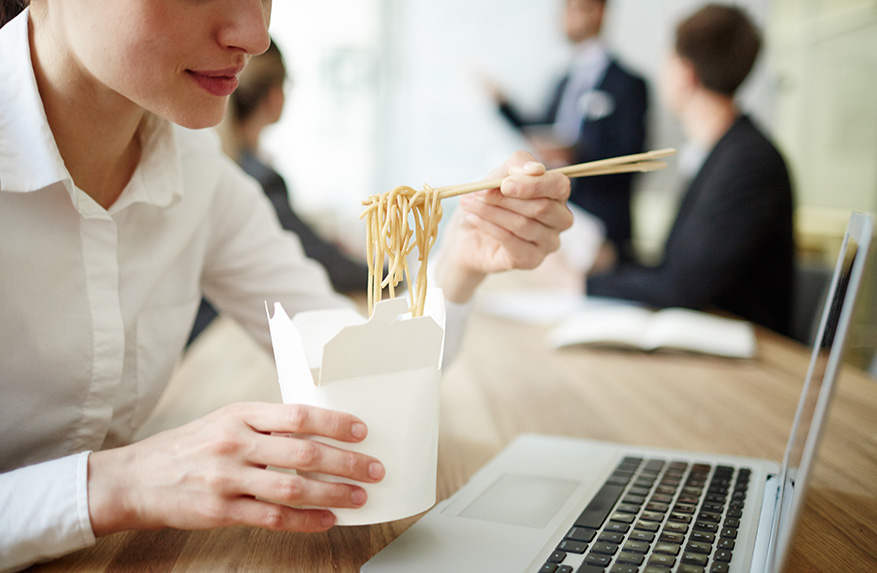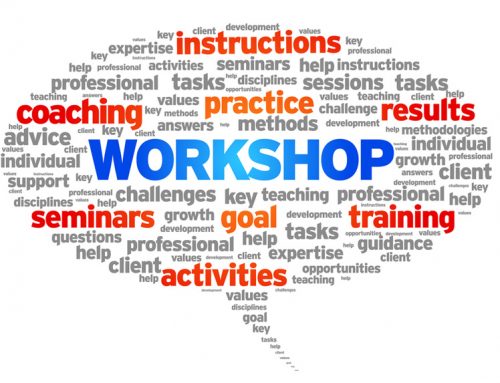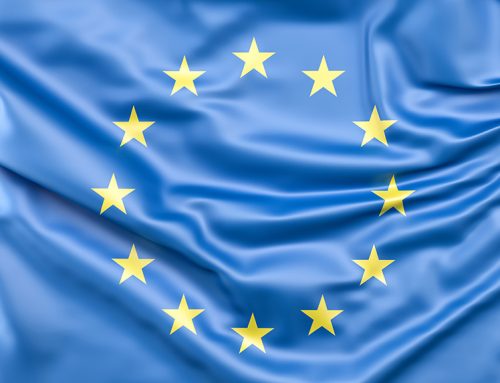A relaxation moment at lunch will make you more efficient and nimbler for the rest of the working day. But the average lunch for a manager is only half an hour. And many works at the lunch, because they have too much to do, or take the opportunity to have another meeting, showing the study from the newspaper Chef.
Sun is shining and right now we just want to be out and breathe the early summer air. But few managers prioritize a proper break and eat in peace and quiet at lunch.
Four out of ten completely skip lunch at least once a week; near two out of ten do several times a week. And on a normal day, managers take averagely only 30 minutes for lunch. It shows the Chief’s lunch survey among just over 2000 executives.
– Many thinks that “if I speed up now, at to lunch time, I can be more efficient somewhere else. Therefore, I will be ready and go on time from work”, says Eva Forsberg Schinkler, behavioural therapist, leadership consultant and chief health expert.
But to think so has consequences that knock over rather than help in the long term, she states
– If you want more energy into your leadership, you will get it not just via eating. It is also about how to eat. The lunch is a time for recovery. Then, we become more efficient the rest of the day.
Together with so much else in a stressed workday, it’s all about priorities and planning, says Eva Forsberg Schinkler.
Over half of the managers, who work at lunch, say that they do it because they have too much to do.
-In a boss’s world there is nothing called not having time. It is about taking the time. The most successful leaders do not run from one meeting to another, they prioritize. If you do not make yourself feel good, how will your employees feel good?
A majority of the managers in the survey spend an average of 20-40 minutes for lunch. Only 16 percent takes 50-60 minutes and hardly anyone more than that. But Eva Forsberg Schinkler thinks, that invested 20 minutes extra will pay off in what you can do for the rest of the day.
Half of the managers in the survey state that they have job meeting at lunch once or several times a week, usually with internal contacts to check off.
This is exactly what Richard Tellstrom, an ethnologist and meal scientist who appeared in SVT’s “History Eaters”, thinks is what makes the lunch today is a business lunch. This is also applying, he says, when eating with your colleagues and having internal meeting.
– You eat with work colleagues, talk about jobs and have positions for monitoring as cannot be at home. The lunch as a relaxation, probably, does not exist for managers at all, he says, and it is not surprised that 14 percent of the managers in the survey usually eat alone.
How it was before. When lunch first came as a part of the working day, in conjunction with the industrialization in the shift of the 1800s and 1900s, people at managerial level usually went home and ate lunch. It was a family time and relaxation. It was also, when they started eating a hot cooked lunch, a habit that was then taken up by the working class during the 1020s and 1930s.
But even if Richard Tellstrom sees as it is difficult to have relaxation at lunch today, especially for managers, he is positively considering lunch as a meeting form.
-The meeting over food is an unbeatable form, because it is more informal. You can’t share a meal with an enemy, you have a community. Therefore, you can also do big business over a lunch. And so, it is nice, it is an important part of being human.
The representative lunch grew during the 1960s and 1970s, when the evening representation disappeared. In the past, people had been represented at home, and the management team consisted in the reality of two persons, a man (the formal boss) and his wife. In the 1990s, the new type of business lunch emerged, where anyone does not even invite, but use the lunch time to make contacts or deal with current business or projects.
Besides eating, have meetings and exercising, there are managers, who choose to do completely different things at lunch. Among the respondents in the survey are power nappers; those, who go out with the dog or do errands and some, who solve crosswords.
-The one, who decides if something gives you power and energy, or steals them, is yourself. If you are a high-performance manager, then, you should consider lunch, “how do I get more energy and power to lead the other people?”





